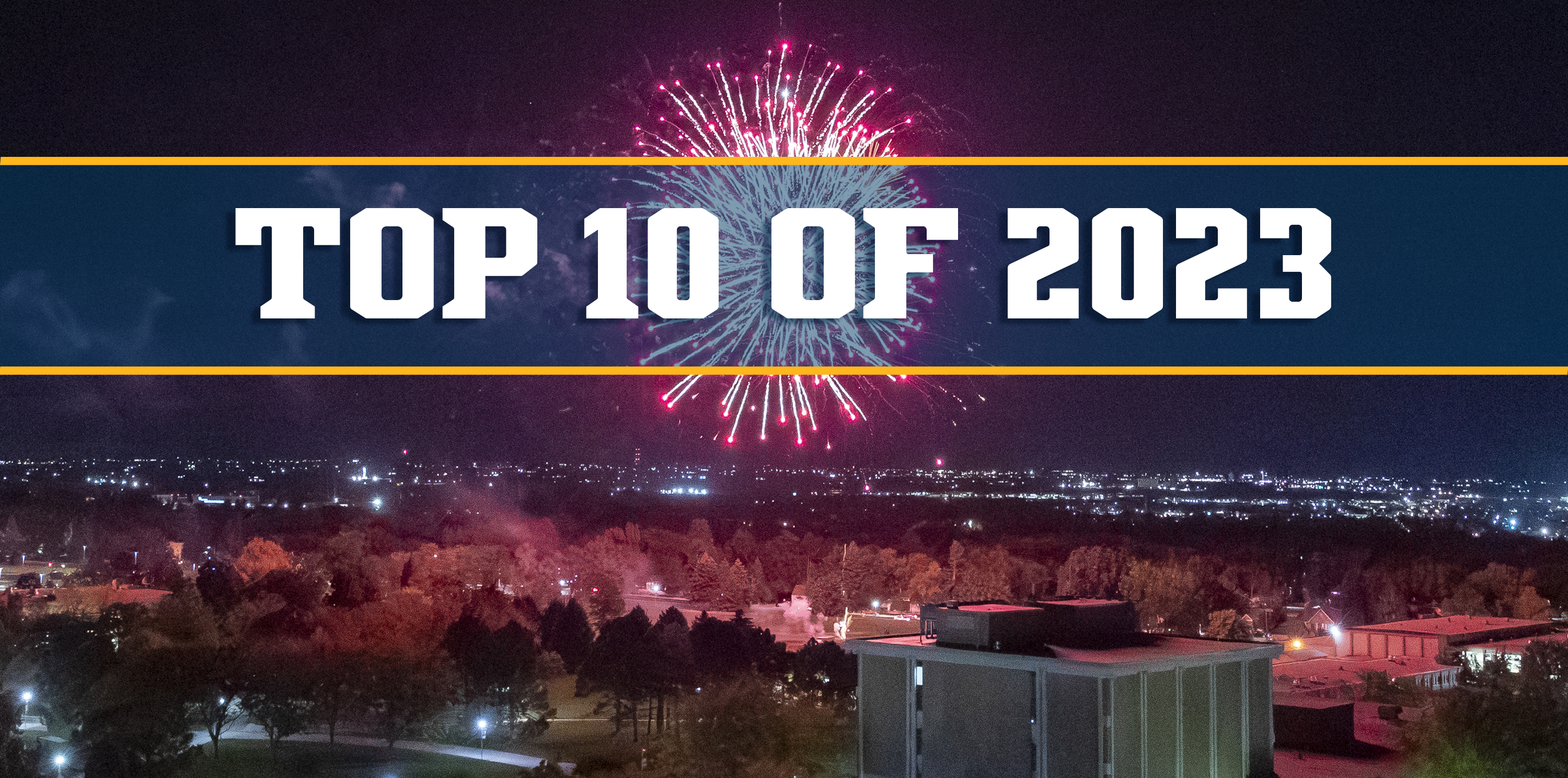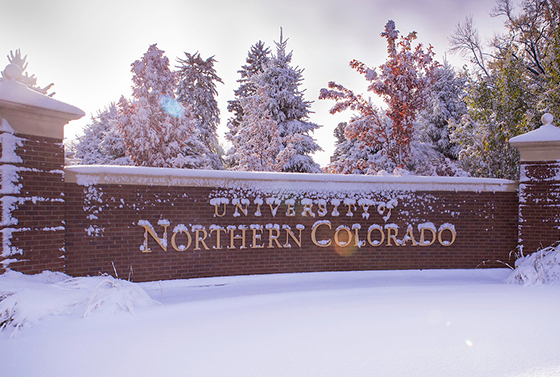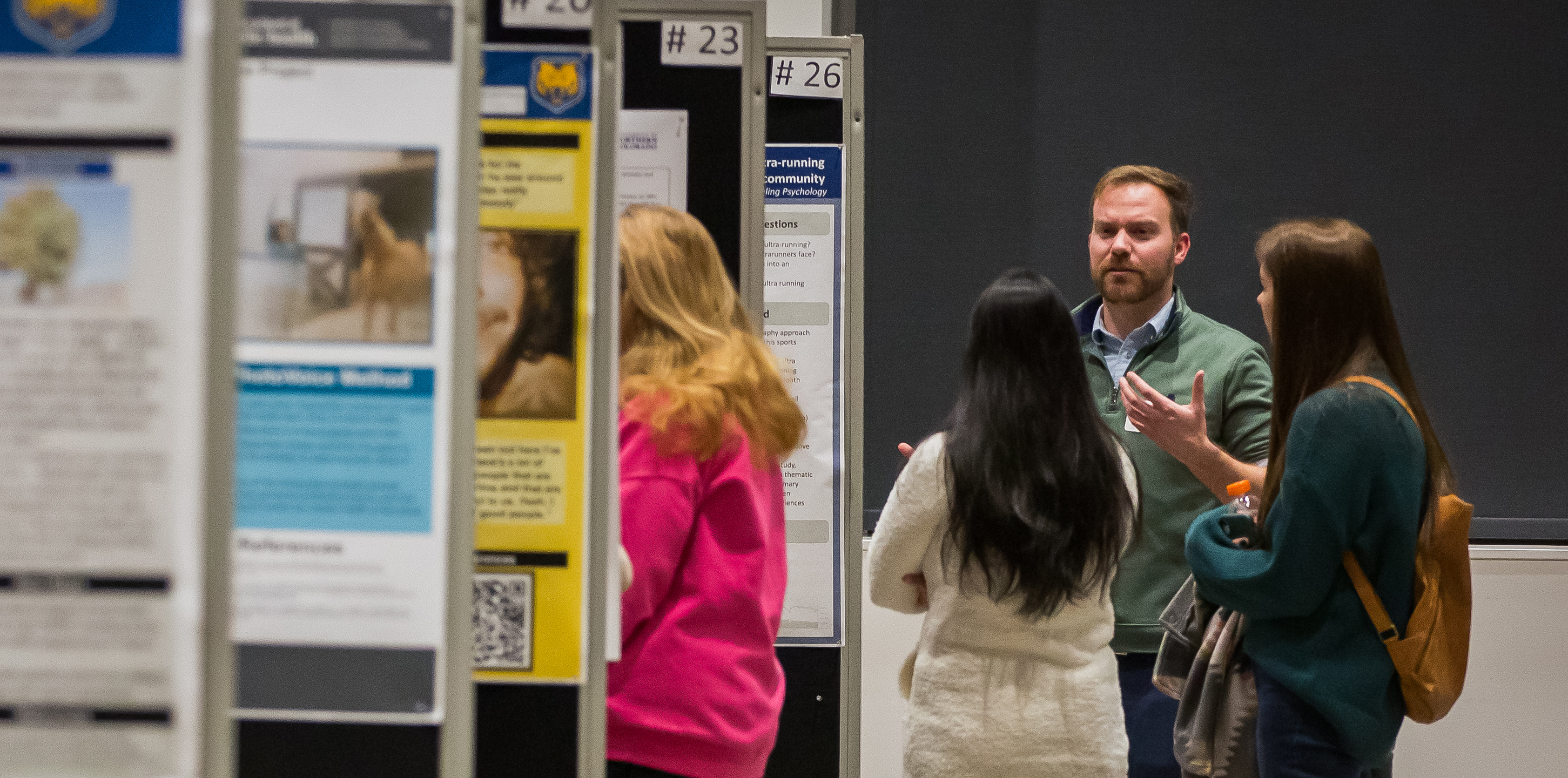
Graduate students from the University of Northern Colorado are putting their scholarly skills on display during the fall 2023 Graduate Research Symposium on Tuesday, Dec. 5, beginning at 4 p.m., in UNC’s University Center and Campus Commons.
This year’s symposium again combines the university's biannual Graduate Research Evening with its third annual Northern Colorado Three Minute Thesis (3MT®) competition. The NoCo 3MT is an event open to everyone that is designed to inform and engage as participating students will have three minutes and a single slide to explain their thesis or dissertation projects using non-technical language anyone can understand.
Four students are competing this year, putting their communication skills to the test. The winner of the NoCo 3MT will receive a monetary prize and go on to compete in the Colorado Council of Graduate Schools 3MT competition next spring.
The symposium starts with a keynote address at 4 p.m., by Randy Larkins, Ph.D., titled "Research: Why do we bother with it?" Larkins, who received his doctoral degree from UNC, is the chair and assistant professor in the Applied Statistics and Research Methods program in the College of Education and Behavioral Sciences.
Following the keynote, from 5 - 6:45 p.m., master’s, specialist and doctoral candidates from across the university will give oral and poster presentations on research topics ranging from collegiate recreation staff experiences with students with disabilities to comparing aquatic plant growth using different substrates.
The NoCo 3MT will run from 7 - 8 p.m., in the Campus Commons Prosperity Room, before the evening wraps up with the awards ceremony.
Students competing in Graduate Research Evening are eligible for the Hutchinson-Lahman Research Award, established to support graduate students’ dissemination of their research at national or regional conferences.
Continue reading to learn more about the graduate students taking part in this year’s NoCo 3MT and get a glimpse of what they’ve been working on. Video presentations from the spring 2022 competition are also available on the Graduate School's website.
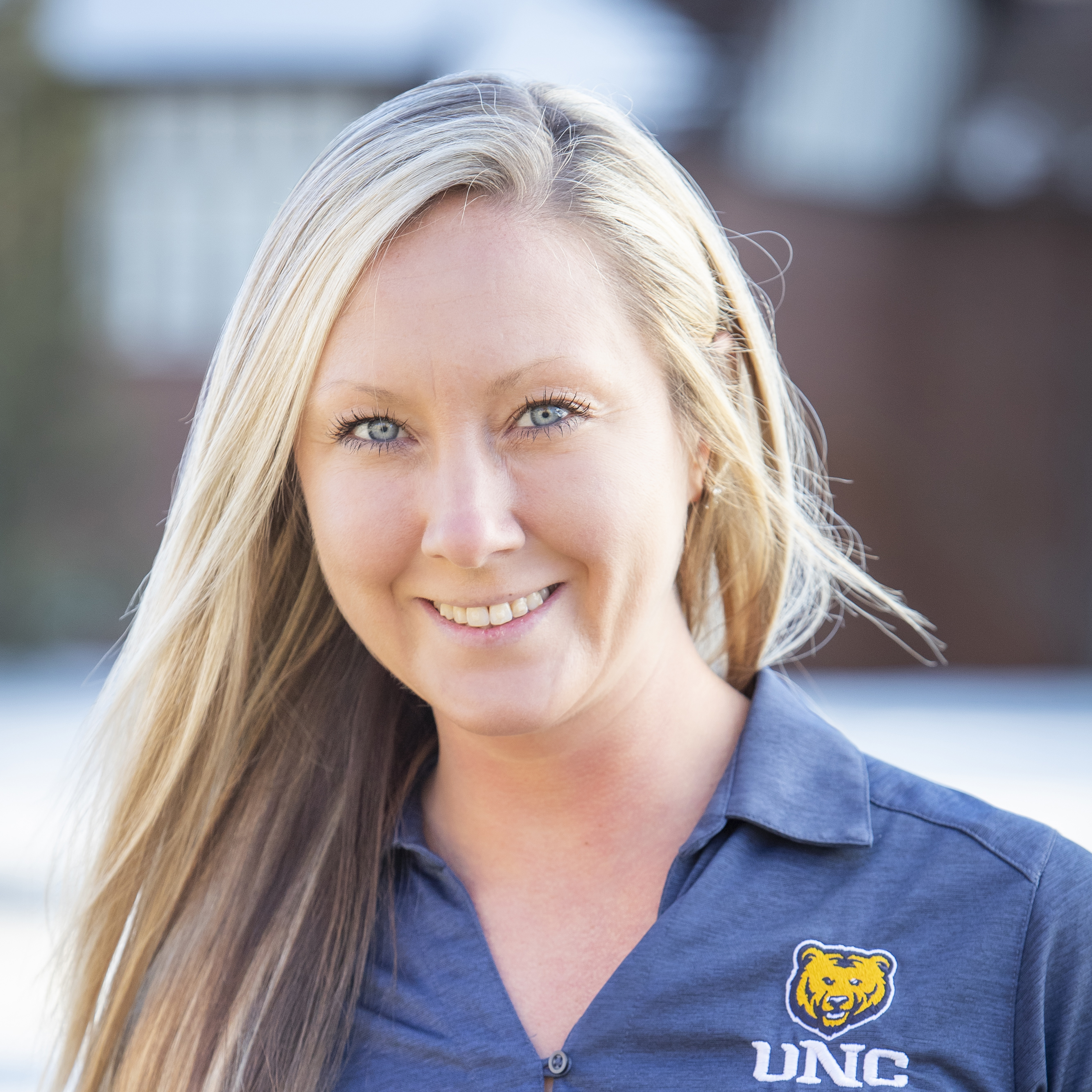
Lisa Paulson
Program: Physical Education and Physical Activity Leadership, Ph.D.
Title of Dissertation/Thesis: Voices of Change: Exploring Physical Education Stakeholders' Policy Work in the United States
About my research: Before this research and acknowledging the importance of looking beyond legislative work, I conducted a pilot study aiming to explore PETE faculty members as policy actors in the United States. This preliminary work not only provided valuable information as a steppingstone for this dissertation, but my passion for policy work grew, as did my curiosity about the use of narratives for policy work and for teaching advocacy skills. I wanted to hear about some stories (at local and state levels) about the ways in which stakeholders in the filed have engaged in policy advocacy to uncover the nuances of the process, as lack of knowledge of the policy process is a major barrier to policy engagement. The purpose of this dissertation is to explore the narratives of physical education stakeholders' policy work in the United States.
What inspired me to pursue this research: Throughout my teaching career, I have been part of a variety of professional engagements, many of which led to my interest and participation in policy-related work. Though I have led councils and taskforces through position statement and guidance document revisions, served on advocacy committees, and participated in several local, state, and national-level policy advocacy initiatives, I consider myself a beginner with regard to policy work, and particularly, policy research. Without formal training, I have become socialized into the profession and do consider myself a policy actor. Upon learning more about the lack of policy work in the physical education field yielding its continued marginalized status, I wondered how I can contribute to this work in an effort to better prepare and support other physical education policy actors. In addition to past literature, several conversations with leaders, scholars, and other professional connections at conferences (e.g., National Association for Kinesiology in Higher Education Conference, SHAPE Convention, etc.) have continued to revolve around the need for not only more policy advocacy engagement, but the need for more scholars doing this work.
How I envision my research being used: Recognizing the need for increased preparation of future policy actors within teacher preparation programs via authentic stories and case studies as teaching tools, this study holds significance as it seeks to understand stakeholder experiences in policy work through real-world narratives, offering insights into the complexities of policy engagement. By uncovering the policy process within detailed narratives, it aims to break barriers and address misunderstandings of policy and lack of training. Ultimately, this work has the potential to enhance the capacity for policy engagement while contributing empirical evidence in physical education policy work. The results may inform policy education in physical education teacher education programs and professional development, empowering stakeholders to influence policy and pave the way for future policy work.
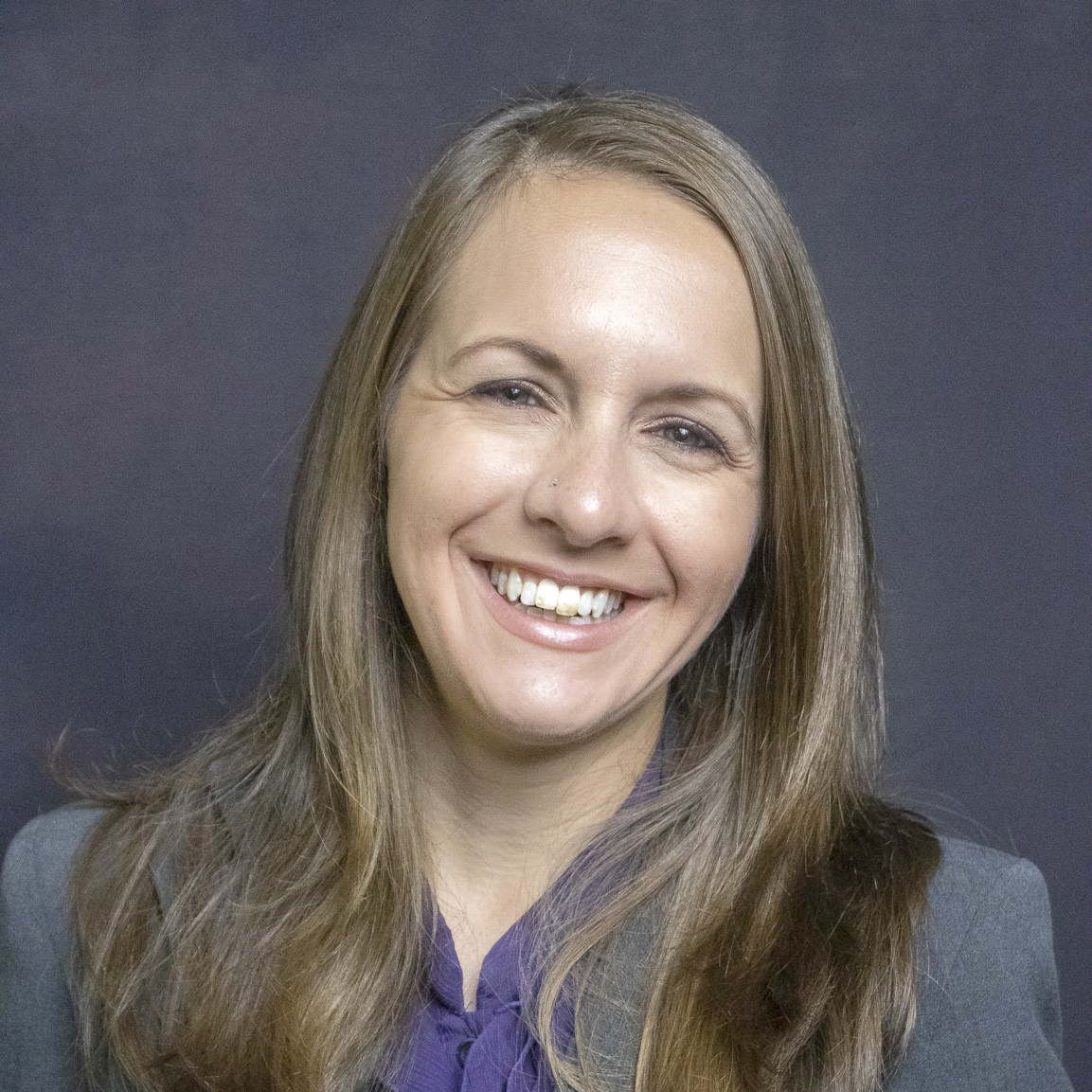
Jessica Duke
Program: Biological Education, Ph.D.
Title of Dissertation/Thesis: Exploring University Student Perceptions of Climate Change Using Connection to Nature and Psychological Distance
About my research: The central goal of my dissertation is to better understand undergraduate biology students’ perceptions of climate change specifically using a localized lens. Research relating to climate change perceptions and understanding is common in the K-12 setting; however, there have been far fewer studies that use undergraduate student populations. Undergraduate students represent a new age of the voting populous and are an important demographic to target for inducing environmental change. To foster climate change awareness, concern, and willingness to act in our undergraduate students, we must first understand how they perceive it. Using both quantitative and qualitative approaches I explored what factors influence undergraduate students’ perceptions of climate change locally. I generally concluded that the framing of climate change (e.g., local vs. global) influences our students’ awareness of its impacts in their local area. I found that the relationship or connection a student has with natural areas is a strong predictor of students’ awareness of climate change locally. Further, I found that students’ personal experiences in nature contributed to their connection to nature and increased environmental awareness. I also found that some students perceive climate change as distant spatially, socially, and temporally which lowers their environmental awareness of climate change locally and their perception of how it impacts themselves; however, this distance seems to be fluid and can be changed through purposeful classroom instruction. I suggest that instructors reframe their coverage of climate change in the classroom to be more place-based to increase the personal relevance of climate change and reduce its perceived distance.
What inspired me to pursue this research: My own experiences teaching climate change to undergraduate students inspired my current research. Before returning to school to pursue my PhD, I taught biology at several higher education institutions on the East Coast. Regardless of the class I was teaching, climate change was a topic that I included in my instruction. Like every topic, you want to provide your students with the foundational knowledge necessary for them to grow as scholars and formulate their own opinions and understanding of the material. This proved to be quite challenging with the topic of climate change. Not only is climate change complex but it can be viewed as fairly controversial which creates additional barriers that many instructors, including myself, find hard to overcome. No matter how I approached the topic of climate change in my classroom, I always felt that my students did not fully grasp its personal relevance. How students view the impacts of climate change has serious implications on their concern, acceptance, and willingness to act to mitigate its effects. This experience led me to pursue climate change education research, with my goal being to better understand how our students perceive localized climate change and find ways for instructors to increase its personal relevance in the classroom.
How I envision my research being used: I hope that my research will provide educators with the necessary tools and information they need to increase the efficacy of their climate change teaching to better serve their students.
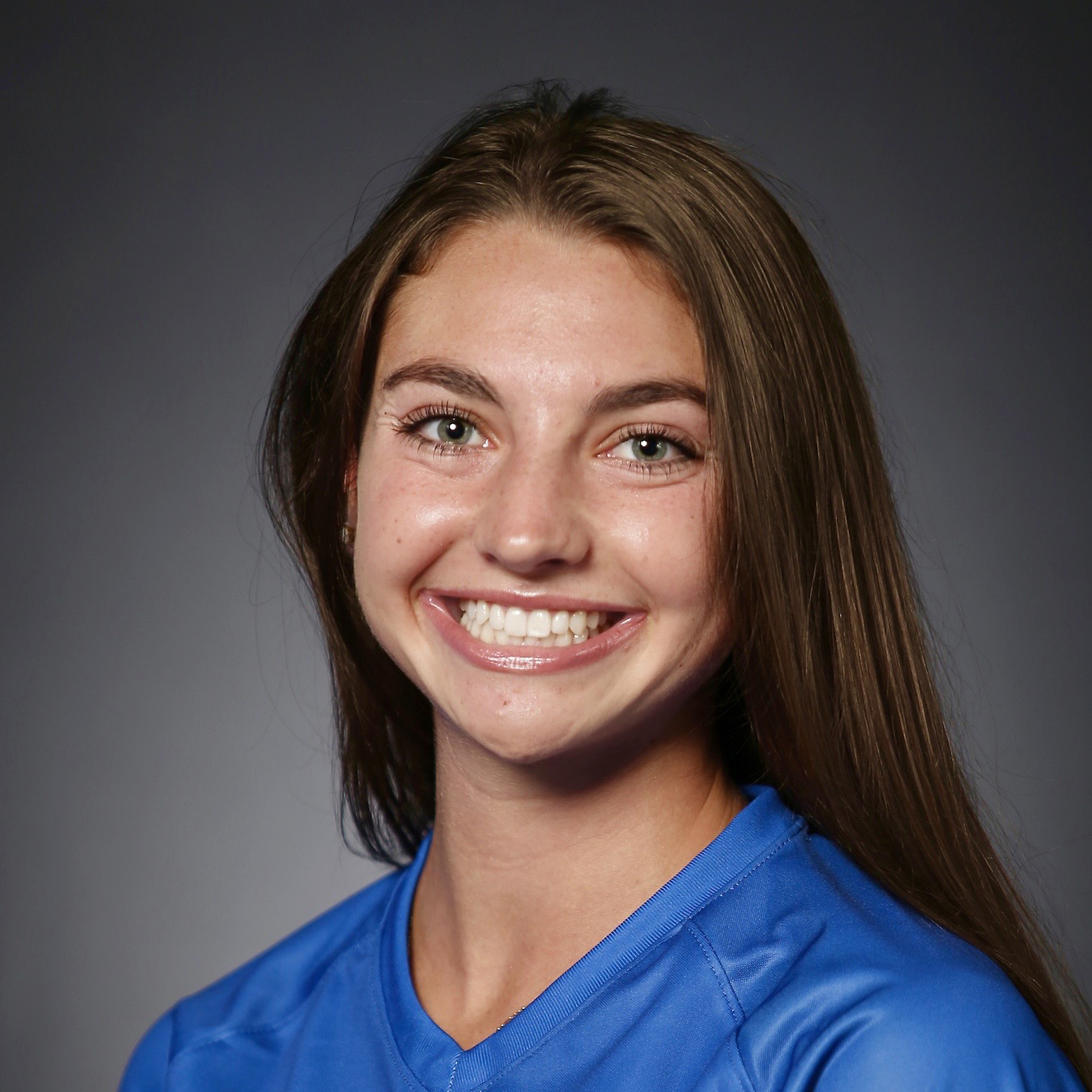
Allie Zerr
Program: Social Psychology of Sport and Physical Activity, M.S.
Title of Dissertation/Thesis: Athletic identity association and prospective basic psychological needs satisfaction predict attitudes of collegiate athletes toward seeking help from the athletic department
About my research: My research is done with DI, DII, and DIII college athletes who took a survey that assessed their basic psychological needs, athletic identity, and attitudes toward seeking professional psychological help. The purpose of the research is to see if there is a relationship between the variables that can help predict the motivation of college athletes to seek mental health support from their athletic departments.
What inspired me to pursue this research: After being a college athlete and experiencing the lack of support that is offered to some college athletes, it inspired me to look into the ways collegiate athletes are supported and where athletic departments can improve the support they offer regarding college athlete mental health
How I envision my research being used: I envision my research being used by athletes, athletic directors, athletic trainers, coaches, sports psychologists, and all administrative support who can help collegiate athletes get the support they need and deserve from their college athletic departments.

Ryan Cheuk Ming Cheung
Program: Counselor Education and Supervision, Ph.D.
Title of Dissertation/Thesis: A Narrative Inquiry into the Perceptions of Counseling Faculty Regarding the Use of Humor in Clinical Supervision
About my research: I interviewed counseling faculty to learn what they think about using humor in supervision.
What inspired me to pursue this research: I have held a long-term interest in the use of humor in personal and professional contexts. I use humor in my own teaching, counseling, and supervision work.
How I envision my research being used: Clinical supervisors using humor if it is part of their personality. Normalize and give permission for humor in professional relationships and encouraging authenticity in people.
More Stories
-
The Top Stories of 2023
Este artículo no está en español.
-
Key Accomplishments Aligned to Strategic Plan Showcased in December Board Meeting
Este artículo no está en español.
-
Increasing Diversity and Growth in Graduates from Business College Headline Fall Class of 2023
Este artículo no está en español.
-
Student Research Takes the Stage at Annual Symposium and Competition
Este artículo no está en español.

